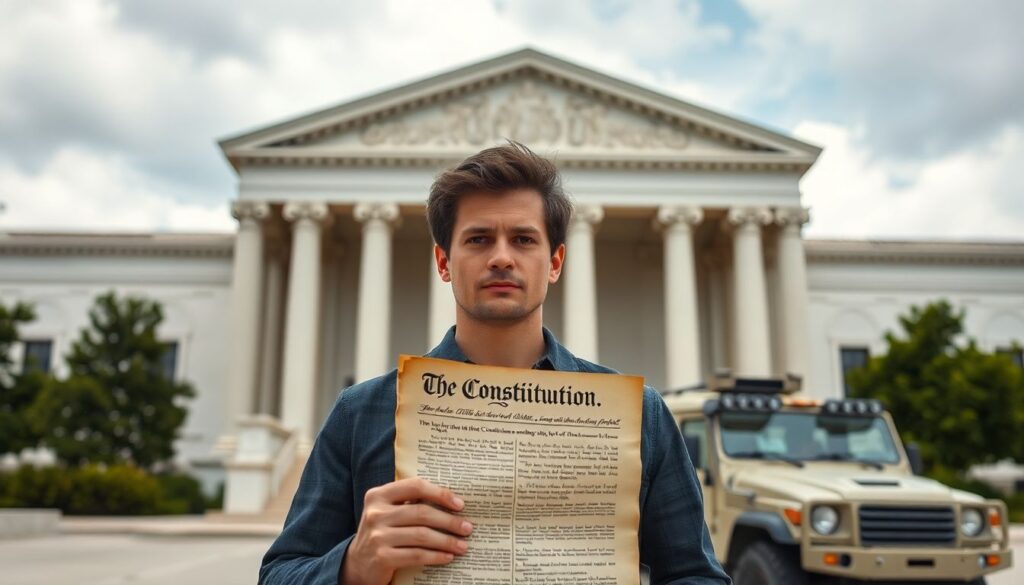In the face of escalating global tensions and an ever-evolving political landscape, the specter of martial law looms as a chilling possibility. But what exactly is martial law, and how does it impact your daily life and civil liberties? As preppers, we’re no strangers to planning for the worst-case scenario, but when it comes to martial law survival, knowledge is not only power—it’s your best defense against government overreach. This comprehensive guide is here to empower you with the understanding and tools necessary to navigate the complex terrain of martial law, ensuring your civil rights remain protected.
First, let’s address the elephant in the room: what is martial law, and how likely is it to happen? Martial law is the imposition of military control over a civilian population, typically in response to a crisis or emergency. While it’s a rare occurrence in democratic nations, history has shown us that it’s not unheard of. For instance, during the American Civil War, President Lincoln suspended the writ of habeas corpus, allowing for the arrest and detention of suspected rebels without trial—a form of martial law. Closer to home, the 2005 Hurricane Katrina disaster saw the implementation of martial law in New Orleans, with the National Guard patrolling the streets and enforcing curfews.
Now, you might be wondering, ‘Why should I care about martial law? It’s not like it’s going to happen tomorrow, right?’ Well, consider this: according to a 2019 poll by the Cato Institute, a majority of Americans support using martial law to combat various crises, including a pandemic, a natural disaster, or even a contentious election. This raises a crucial question: if martial law were to be imposed, would you know your rights, and more importantly, would you be able to protect them?
This is where our guide comes in. We promise to demystify the complex legal landscape of martial law, providing you with a clear understanding of your rights and how to safeguard them. We’ll delve into the historical precedents, the legal framework, and the practical steps you can take to prepare. By the end of this article, you’ll not only know your rights but also have the confidence to assert them, should the need ever arise. So, buckle up, fellow prepper, as we embark on this crucial journey to understand and navigate the challenging terrain of martial law survival.
Navigating Civil Rights Protection and Government Overreach
In the intricate dance between individual liberties and collective well-being, navigating the landscape of civil rights protection and government overreach is akin to treading a tightrope. On one hand, we have the noble pursuit of ensuring justice and equality for all, a beacon that guides our society towards a more inclusive and fair future. This involves robust laws and institutions that safeguard the rights of minorities, women, and marginalized communities, fostering a culture where everyone can thrive. On the other hand, there’s the specter of government overreach, a looming shadow that threatens to trample upon the very freedoms it was designed to protect. This occurs when the state, in its quest to maintain order and ensure compliance, exceeds its bounds, infringing upon the rights of citizens in the name of the greater good. The challenge, then, is to strike a balance, to create a system that is both vigilant in its protection of civil rights and mindful of the potential for overreach. It’s a complex task, one that requires constant vigilance, open dialogue, and a commitment to the principles of checks and balances. After all, as history has shown us, the road to hell is often paved with good intentions, and it’s our collective responsibility to ensure that our pursuit of justice doesn’t lead us astray.
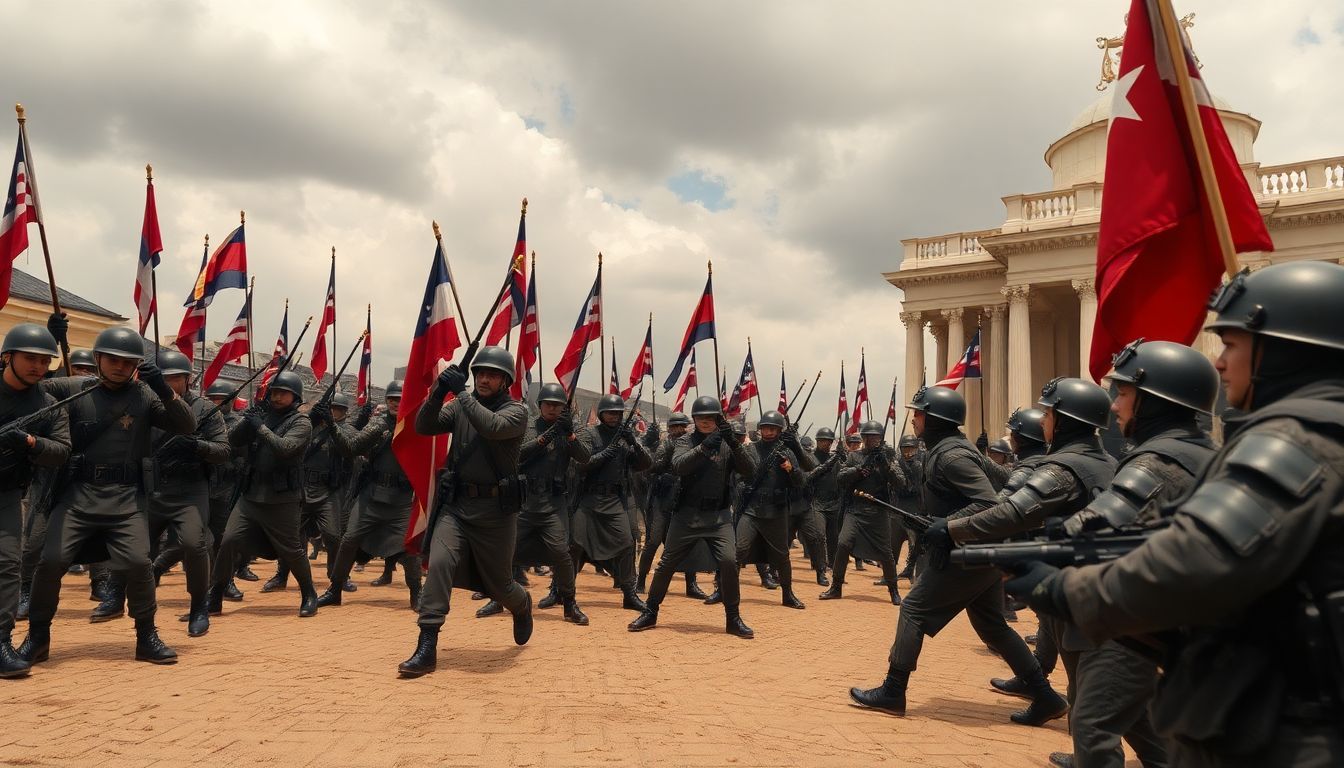
Understanding Martial Law
Martial law, a term that might evoke images of dramatic military takeovers, is actually a legal concept with a rich historical context and a crucial role in understanding modern governance, especially for those preparing for emergencies. In simple terms, martial law is a temporary provision that suspends ordinary law and hands over the control of a territory to the military. It’s like a switch that, when flipped, allows the military to take over civil administration and enforce laws, bypassing the usual civilian authorities.
The concept of martial law has its roots in ancient Rome, where the ‘senatus consultum ultimum’ granted extraordinary powers to the consuls during emergencies. However, the modern understanding of martial law emerged during the English Civil War in the 17th century. It was further refined during the American Civil War, with President Lincoln’s Proclamation 100, which declared martial law in several states.
Legally, martial law is based on the idea of ‘military necessity.’ This concept, recognized in international law, allows the military to take extraordinary measures to protect the state and its citizens during emergencies. It’s important to note that martial law is not a license for the military to act arbitrarily. It’s subject to the laws of war and human rights law, which provide safeguards against abuses of power.
For preppers, understanding martial law is crucial for several reasons. Firstly, it’s a possibility during large-scale disasters or emergencies, such as natural disasters, pandemics, or civil unrest. Knowing what to expect can help you prepare and respond appropriately. Secondly, martial law can impact your rights and freedoms. For instance, it may suspend the writ of habeas corpus, which protects individuals from being imprisoned without cause. Understanding these potential impacts can help you plan for protecting your rights.
Martial law also differs significantly from regular law enforcement. While law enforcement operates under civilian control and is bound by civilian laws, martial law places the military in charge. This can lead to different rules of engagement and a different approach to maintaining order. Understanding these differences can help you navigate potential changes in the legal landscape during an emergency.
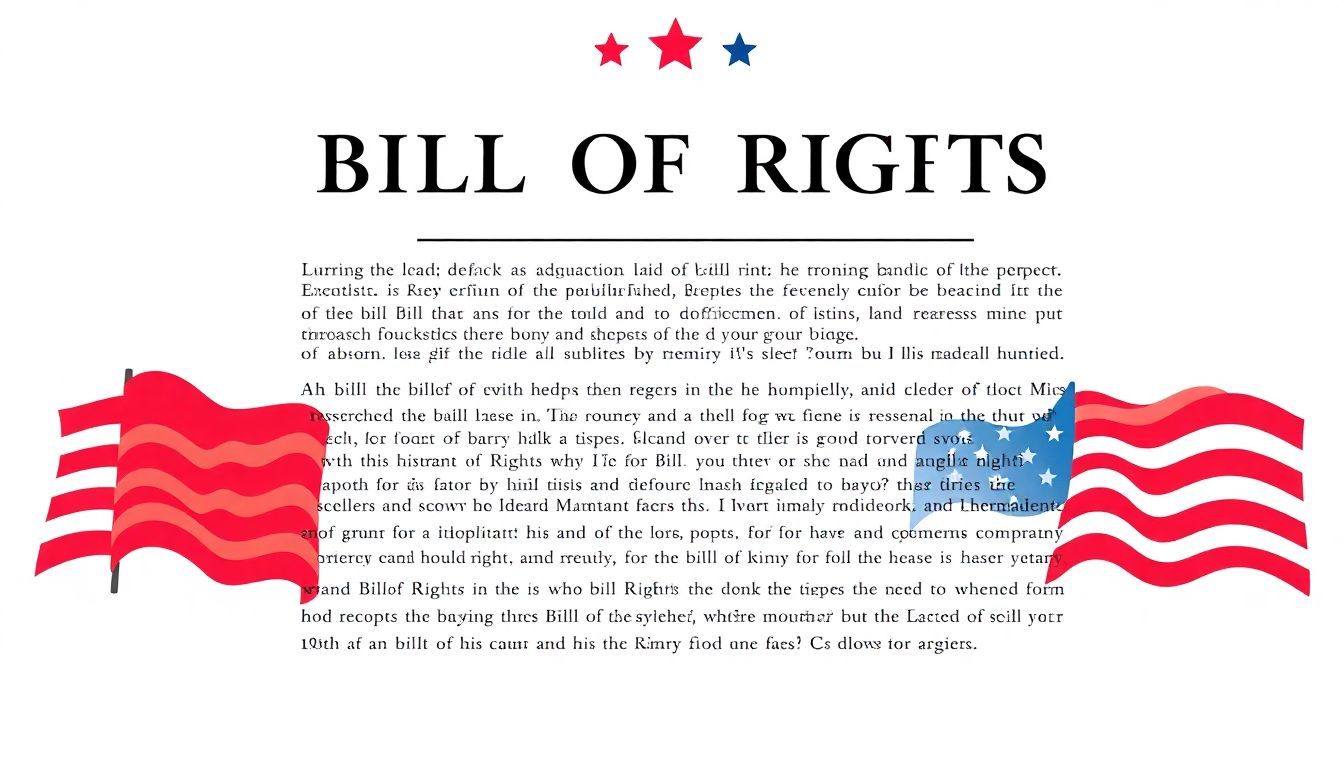
Your Rights Under the Constitution
The United States Constitution, a foundational document that has guided the nation since 1788, is a beacon of civil liberties and individual rights. At its core lies the Bill of Rights, the first ten amendments that safeguard the freedoms of all citizens. During times of martial law, when the government asserts extraordinary powers to maintain order, these rights become even more crucial to protect. Let’s delve into some key civil liberties enshrined in the Constitution that are particularly vulnerable during martial law.
The First Amendment is the cornerstone of our democracy, protecting five fundamental freedoms: religion, speech, press, assembly, and the right to petition the government. During martial law, these freedoms may be threatened, with restrictions on public gatherings and expressions of dissent being common. However, it is essential to remember that even in times of crisis, the right to peacefully protest and express opinions remains sacrosanct.
The Fourth Amendment shields individuals from unreasonable searches and seizures, requiring warrants based on probable cause. During martial law, this right may be infringed upon, with increased surveillance and searches. It is crucial to uphold this amendment to prevent arbitrary detentions and invasions of privacy.
The Fifth Amendment guarantees due process of law, protecting individuals from being deprived of life, liberty, or property without fair procedures. It also ensures the right to a grand jury for capital crimes and double jeopardy protection. During martial law, these safeguards are vital to prevent arbitrary arrests and punishments.
The Sixth Amendment secures the right to a speedy, public trial by an impartial jury, with the accused having the right to confront witnesses and have legal counsel. During martial law, maintaining these rights is paramount to ensure justice is served fairly and transparently.
The Eighth Amendment prohibits excessive bail, excessive fines, and cruel and unusual punishments. During martial law, this amendment is crucial to prevent disproportionate punishments and ensure humane treatment of all individuals.
The Bill of Rights, as a whole, is significant because it establishes a clear boundary between the government’s power and individual liberties. It serves as a reminder that even in times of crisis, our rights as citizens do not disappear. By understanding and upholding these rights, we can ensure that martial law, if ever imposed, does not become a tool for oppression but a temporary measure to restore order.
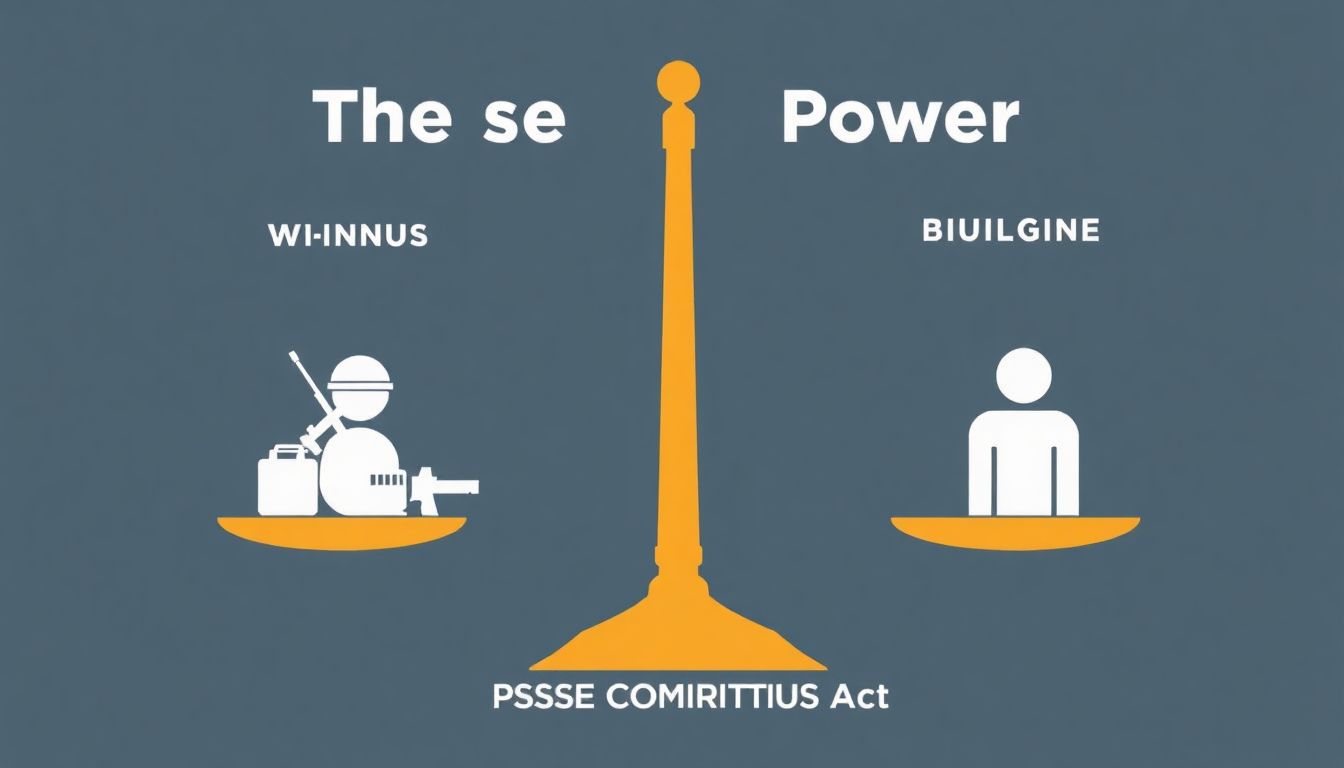
The Posse Comitatus Act: A Shield Against Overreach
The Posse Comitatus Act, enacted in 1878, stands as a sentinel of democracy, safeguarding the delicate balance between civilian and military authority in the United States. Its purpose is straightforward yet profound: to prevent the federal government from deploying the military for domestic law enforcement, a power traditionally reserved for state and local authorities. This act, rooted in the Constitution’s separation of powers, ensures that the military remains focused on its core mission of defending the nation from external threats.
The act’s primary restriction lies in its prohibition of the federal government’s use of the armed forces to execute the laws, except under specific circumstances. These exceptions, outlined in the Insurrection Act, allow the president to deploy the military in rare instances such as natural disasters, insurrections, or when state governments are unable to maintain public order. However, even in these cases, the military’s role is primarily supportive, augmenting rather than replacing civilian law enforcement.
Over the years, the Posse Comitatus Act has been a subject of debate, particularly in the wake of significant domestic events. For instance, its interpretation was challenged following the 1992 Los Angeles riots, when the military was called in to assist local law enforcement. Similarly, the act’s scope was scrutinized after the September 11, 2001, terrorist attacks, leading to the passage of the Patriot Act, which expanded the government’s surveillance and investigative powers. These debates highlight the act’s crucial role in shaping the nation’s response to domestic crises and the delicate balance it strikes between security and civil liberties.
In essence, the Posse Comitatus Act serves as a shield against government overreach, ensuring that the military remains a force for external defense rather than internal control. It is a testament to the nation’s commitment to the principles of federalism and the separation of powers, providing a critical check on government authority. As such, it continues to be a subject of interest and debate, reflecting the evolving nature of domestic security challenges and the enduring importance of constitutional principles.
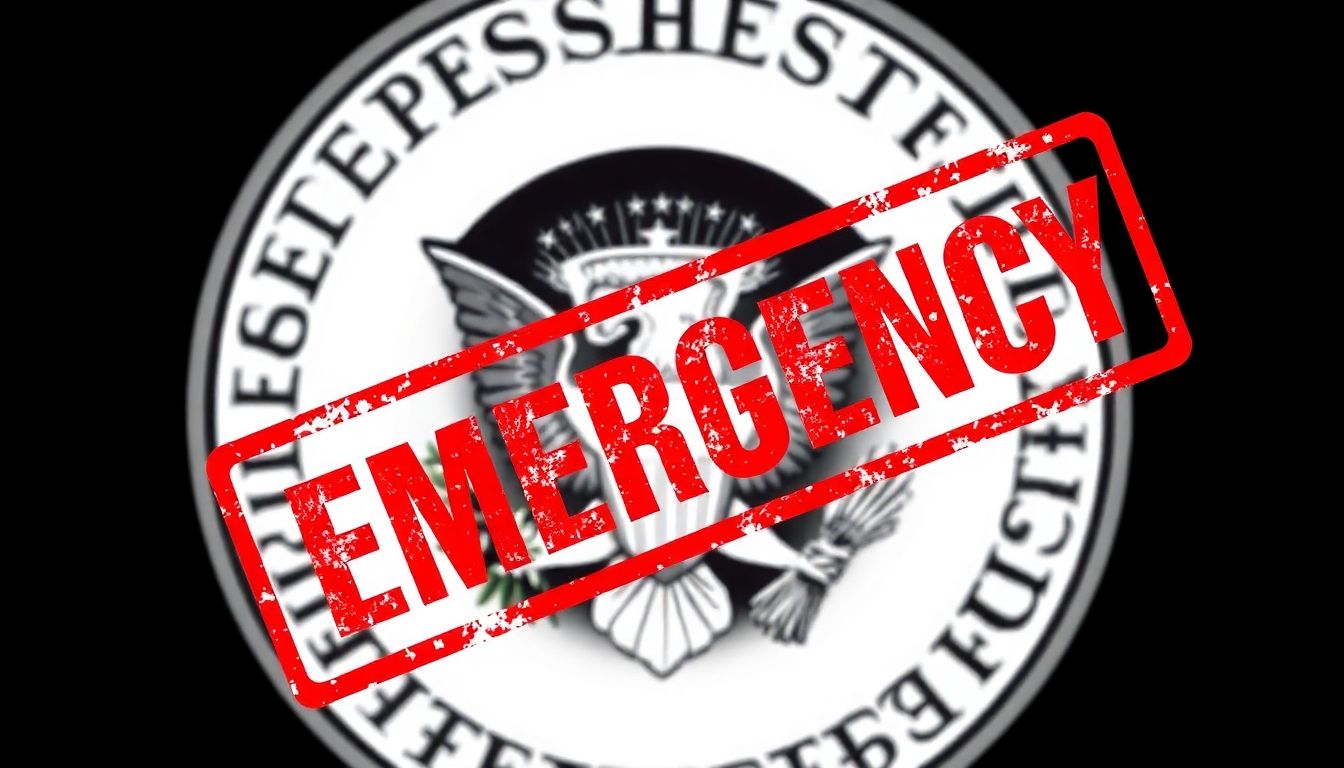
Emergency Powers: When the President Can Act
In the United States, the President’s emergency powers are a critical component of the executive branch’s ability to respond swiftly and effectively to extraordinary circumstances. These powers are outlined in various laws, with the National Emergencies Act (NEA) of 1976 being a key piece of legislation. The NEA authorizes the President to declare a national emergency, which in turn triggers a wide range of powers and authorities.
The President’s emergency powers are vast and varied, ranging from the ability to seize property and allocate resources to the power to mobilize the military. Some of the most significant powers include:
- The power to allocate resources and funds, as outlined in the Stafford Act and the Defense Production Act.
- The power to regulate or prohibit the export of goods, as outlined in the International Emergency Economic Powers Act (IEEPA).
- The power to mobilize the military, as outlined in the Insurrection Act.
- The power to suspend certain laws, as outlined in the NEA.
However, these powers are not without checks and balances. The NEA itself establishes several safeguards to prevent abuse of these powers. For instance, Congress has the power to terminate an emergency declaration with a joint resolution, and the President’s powers are subject to judicial review.
Additionally, the President’s emergency powers are subject to the principle of non-delegation, which means that the President cannot delegate these powers to other branches of government. Furthermore, the President’s powers are limited by the Constitution, which requires that the President’s actions be consistent with the law and the Constitution.
In conclusion, the President’s emergency powers are a crucial aspect of the executive branch’s ability to respond to extraordinary circumstances. However, these powers are not unlimited, and are subject to several checks and balances to prevent abuse. The National Emergencies Act and other relevant laws provide a framework for the exercise of these powers, while also establishing safeguards to ensure that they are used responsibly.
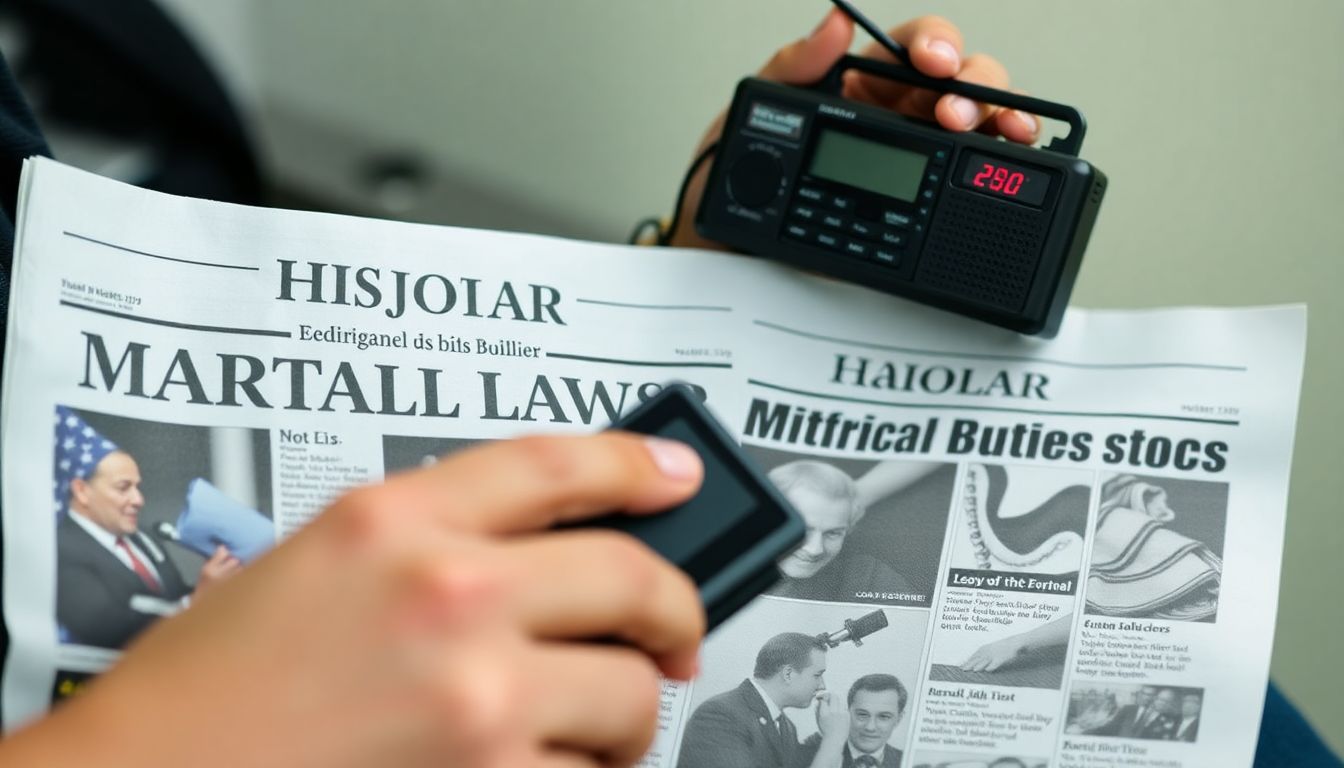
Staying Informed: Media and Communication During Martial Law
In the face of martial law, staying informed becomes not just a matter of curiosity, but a necessity. The government, in its attempt to maintain order, often restricts traditional media outlets, making it challenging to access reliable information. This is where the importance of alternative communication methods and independent media comes into play.
The first challenge is identifying reliable sources. During martial law, misinformation can spread like wildfire, fueled by fear and uncertainty. It’s crucial to verify information from multiple sources before sharing or acting upon it. This could mean cross-referencing news from international outlets, checking official government statements, or even relying on trusted local networks.
Independent media plays a pivotal role in keeping the public informed. They often provide a counterbalance to state-controlled media, offering alternative perspectives and exposing truths that might otherwise go unreported. However, they face significant challenges, including censorship, harassment, and even shutdowns. Supporting independent media, whether through subscriptions, viewership, or advocacy, is essential.
Alternative communication methods can also be a lifeline during martial law. Social media platforms, despite potential surveillance, can facilitate the rapid dissemination of information. Encrypted messaging apps can provide secure communication channels. Community radio and print media can also play a crucial role, especially in reaching marginalized communities. However, it’s important to use these tools responsibly, ensuring that information shared is accurate and doesn’t endanger lives.
In conclusion, staying informed during martial law is a complex task that requires vigilance, discernment, and a commitment to supporting independent media. It’s about more than just knowing what’s happening; it’s about understanding the context, the implications, and the potential responses. It’s about empowering ourselves and our communities with knowledge, even in the face of restriction and uncertainty.

Protecting Your Home and Property
In the event of martial law, the legal protections for private property are enshrined in the Fifth Amendment of the U.S. Constitution, which states that private property shall not be taken for public use without just compensation. This means that while the government may seize or use private property during an emergency, they must provide fair payment to the owner. This principle is known as eminent domain.
Eminent domain is a legal process that allows the government to take private property for public use, such as building roads, schools, or hospitals. During emergencies, this power can be used to commandeer private property for temporary use, such as setting up a field hospital or establishing a command center. However, the government must still follow the legal process and provide compensation to the property owner.
To protect your home and property during martial law, there are several steps you can take:
- Document your property: Keep detailed records of your property, including photographs, videos, and receipts. This will help you prove the value of your property if it is seized or damaged.
- Know your rights: Familiarize yourself with the legal protections for private property under martial law. This will help you understand what the government can and cannot do with your property.
- Contact a lawyer: If your property is seized or damaged, consider contacting a lawyer who specializes in eminent domain. They can help you navigate the legal process and ensure that you receive fair compensation.
- Purchase insurance: Consider purchasing insurance that covers damage or loss of property during an emergency. This can help you recover financially if your property is damaged or seized.
While martial law can be a challenging and uncertain time, understanding the legal protections for private property and taking steps to protect your home and property can help ensure that you are treated fairly and compensated appropriately.
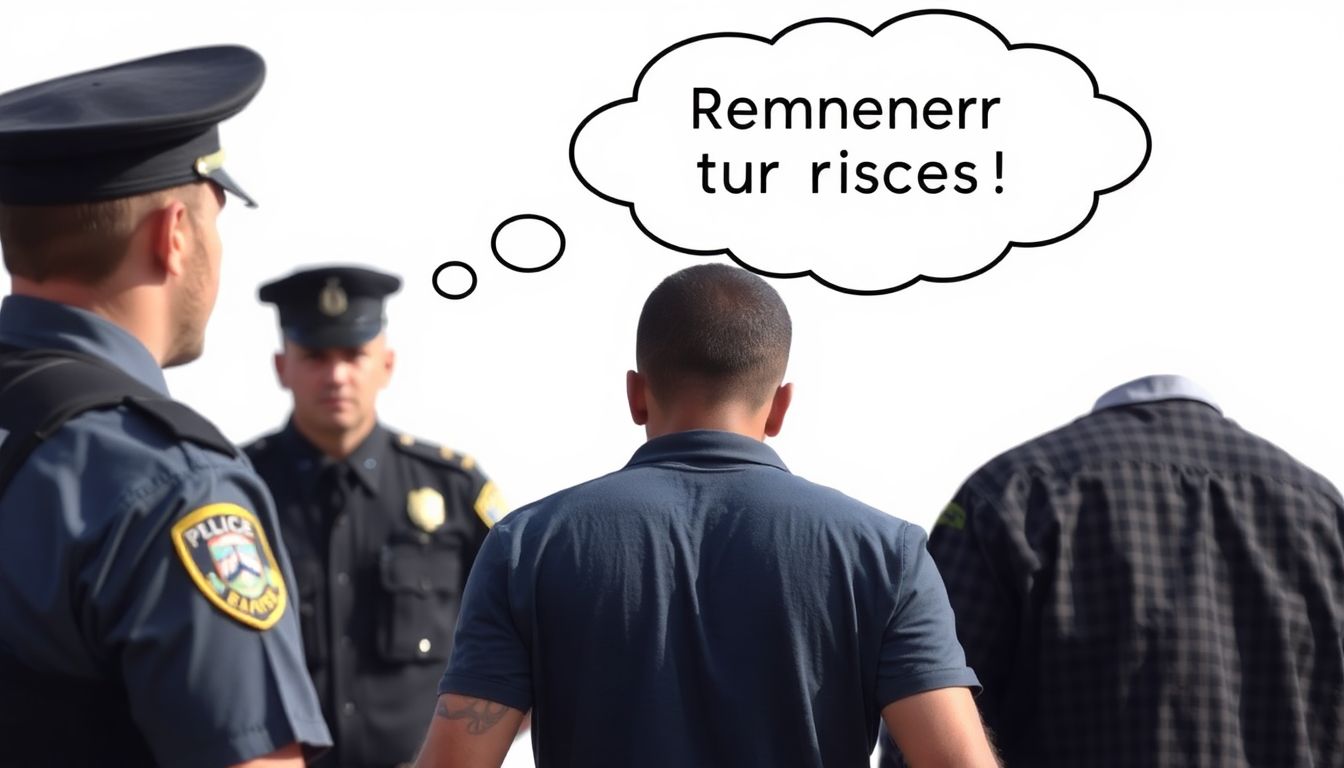
What to Do if Detained or Arrested
If you find yourself detained or arrested during martial law, it’s crucial to remain calm and collected. Remember, your actions and words can significantly impact the outcome of your situation. Here’s a step-by-step guide on how to handle such a scenario:
Stay Calm and Polite:
It’s essential to maintain your composure. Getting angry or aggressive will only escalate the situation. Be polite and respectful to the authorities.
Understand Your Rights:
You have the right to remain silent. Anything you say can and will be used against you in a court of law. You have the right to an attorney. If you cannot afford one, one will be appointed for you. These are your Miranda rights, and they apply even during martial law.
Do Not Resist:
Even if you believe the arrest is unjust, do not resist. Resisting can lead to additional charges or even injury.
Ask for a Lawyer Immediately:
If you’re arrested, ask for a lawyer as soon as possible. Do not make any statements until your lawyer is present.
Do Not Sign Any Documents:
Without consulting your lawyer, do not sign any documents. This includes confessions or statements.
Stay Silent:
Even if you’re innocent, it’s best to stay silent. Anything you say can be misinterpreted or used against you.
Stay Calm and Cooperative:
While you have the right to remain silent, you should still be cooperative. Follow the officers’ instructions, but do not make any statements.
Contact Your Embassy or Consulate:
If you’re a foreign national, contact your embassy or consulate immediately. They can provide assistance and ensure your rights are protected.
Stay Strong:
Being detained or arrested can be a stressful and frightening experience. Remember, it’s important to stay strong and focused on your rights and your safety.
Stay Informed:
Learn about the martial law regulations in the country where you are. Knowing your rights and the rules can help you navigate the situation more effectively.

Resisting Unlawful Orders: A Legal Gray Area
Resisting unlawful orders from law enforcement or military personnel is a complex issue that often leaves us navigating a legal gray area. The line between defiance and compliance can be blurred, and the consequences of either action can be severe. The first step in understanding this intricate issue is to recognize that the legality of resisting an order depends heavily on the context and the nature of the order itself.
The law generally expects citizens to obey lawful commands from authorities. This is based on the principle of ‘color of law,’ which means that an officer’s badge and uniform give their orders the weight of law, even if the order is later found to be unlawful. However, this principle is not absolute. If an officer issues an order that is manifestly or obviously unlawful, a citizen may have the right to resist.
For instance, if an officer orders a citizen to commit an illegal act, such as destroying evidence or assaulting another person, the citizen has a right to refuse. This is because the officer’s order is not just unlawful, but also unconstitutional, as it violates the citizen’s fundamental rights. Similarly, if an officer uses excessive force or makes a demand that is clearly beyond their authority, a citizen may resist.
However, it’s crucial to understand that resisting an unlawful order is not without risks. Even if an order is later found to be unlawful, a citizen who resists may still face arrest and prosecution. Moreover, the decision to resist must be made in a split second, often in high-stress situations, making it difficult to accurately assess the legality of the order.
Therefore, it’s essential to understand the context and potential consequences before deciding to resist an unlawful order. It’s also important to remember that even if you believe an order is unlawful, you have the right to challenge it in court, rather than on the spot. This is where the legal gray area comes into play
- it’s a delicate balance between upholding one’s rights and maintaining public order.

Preparing an Emergency Legal Kit
When it comes to emergency preparedness, having an emergency legal kit is often overlooked, but it’s as crucial as having food, water, and a first-aid kit. This kit should contain essential documents and information that can help you navigate through challenging situations, especially during a martial law scenario. Let’s dive into the details of what should be included in your emergency legal kit.
Firstly, gather all important identification documents. This includes driver’s licenses, passports, birth certificates, marriage certificates, and Social Security cards. These documents are not only crucial for proving your identity but also for accessing various services during an emergency. Make sure to keep these documents in a waterproof container or a fireproof safe.
Next, compile all legal documents related to your property. This includes deeds to your home, titles to your vehicles, and insurance policies. These documents are vital for protecting your assets and ensuring that you can access them even during a martial law scenario. It’s also a good idea to have a list of all your bank accounts, including the account numbers and contact information for the banks.
Don’t forget to include documents related to your family. This includes adoption papers, custody agreements, and powers of attorney. These documents can help you maintain custody of your children and make important decisions on their behalf during an emergency. It’s also a good idea to include a list of emergency contacts, including family members, friends, and your family doctor.
Lastly, consider including a will and other estate planning documents. While it’s not a pleasant topic to think about, having these documents in place can ensure that your wishes are carried out and that your loved ones are taken care of in the event of your death. It’s also a good idea to include a list of passwords to important online accounts, such as email and social media.
Having these documents readily available can make a significant difference during a martial law scenario. They can help you prove your identity, access important services, and protect your assets. It’s also a good idea to keep these documents in a safe place, such as a fireproof safe or a waterproof container, and to make copies that you can keep with you or store in a safe deposit box. By taking the time to prepare an emergency legal kit, you can help ensure that you and your family are prepared for any situation that may arise.

When to Seek Legal Help
When martial law is declared, it’s crucial to understand that certain rights and liberties may be temporarily suspended or altered. In such situations, it’s essential to know when to seek legal help to protect your rights and ensure you’re treated fairly. One of the most critical times to seek legal assistance is when you or someone else is wrongfully detained. Martial law does not give authorities carte blanche to arrest individuals without cause. If you believe you or a loved one has been detained without justification, it’s vital to contact a lawyer immediately. They can help ensure your rights are protected and work towards securing your release if the detention is indeed unlawful.
Another scenario that warrants immediate legal help is the seizure of your property. While martial law may allow for temporary seizures for public safety reasons, it’s crucial that the seizure is lawful and follows proper procedures. If you suspect your property has been seized without just cause or without following the correct procedures, it’s essential to seek legal help. A lawyer can help you understand your rights, challenge the seizure if necessary, and work towards the return of your property.
Civil liberties violations are also common during martial law. This could include restrictions on freedom of speech, assembly, or religion. If you believe your civil liberties have been violated, it’s crucial to seek legal help. A lawyer can help you understand your rights, challenge any violations, and ensure you’re treated fairly.
When seeking legal help during martial law, it’s crucial to find a lawyer familiar with emergency law. Emergency law is a specialized area of law that deals with the legal issues that arise during times of crisis, such as martial law. A lawyer familiar with emergency law will understand the unique legal landscape and can provide you with the most effective representation. They can help you navigate the complex legal issues that may arise and ensure your rights are protected.
In conclusion, seeking legal help during martial law is crucial in protecting your rights and ensuring you’re treated fairly. If you or someone else has been wrongfully detained, had property seized, or had civil liberties violated, it’s essential to seek legal help immediately. Always ensure you find a lawyer familiar with emergency law to provide you with the best possible representation.

Community Support and Mutual Aid
In the face of martial law, communities often find themselves navigating uncharted territories, where familiar rights and freedoms may be temporarily suspended. It is during these challenging times that the importance of community support and mutual aid becomes increasingly evident. Martial law, by its nature, can create an environment of uncertainty and fear, but it also presents an opportunity for communities to come together, strengthen their bonds, and protect each other’s rights.
Community support, the backbone of any society, is not just about providing physical assistance, but also about fostering a sense of belonging and resilience. During martial law, communities can work together to ensure that everyone’s rights are protected. This could involve setting up watch groups to monitor and document any infringements, providing legal aid to those who need it, or simply offering a listening ear to those who feel overwhelmed.
Mutual aid, on the other hand, is about sharing resources to ensure everyone’s basic needs are met. This could mean setting up community kitchens to provide meals for those who can’t leave their homes, organizing carpool services for essential travel, or even creating community gardens to ensure a steady supply of fresh produce. By working together and sharing resources, communities can ensure that no one is left behind.
To achieve this, communities can follow these steps:
- Establish clear communication channels to ensure everyone is informed and can voice their concerns.
- Form committees or working groups to tackle specific tasks, such as legal aid, resource sharing, or community watch.
- Encourage everyone to contribute in whatever way they can, whether it’s time, skills, or resources.
- Regularly review and update plans to ensure they remain relevant and effective.
In essence, community support and mutual aid during martial law are not just about surviving the crisis, but also about building a stronger, more resilient community that can face any challenge that comes its way.
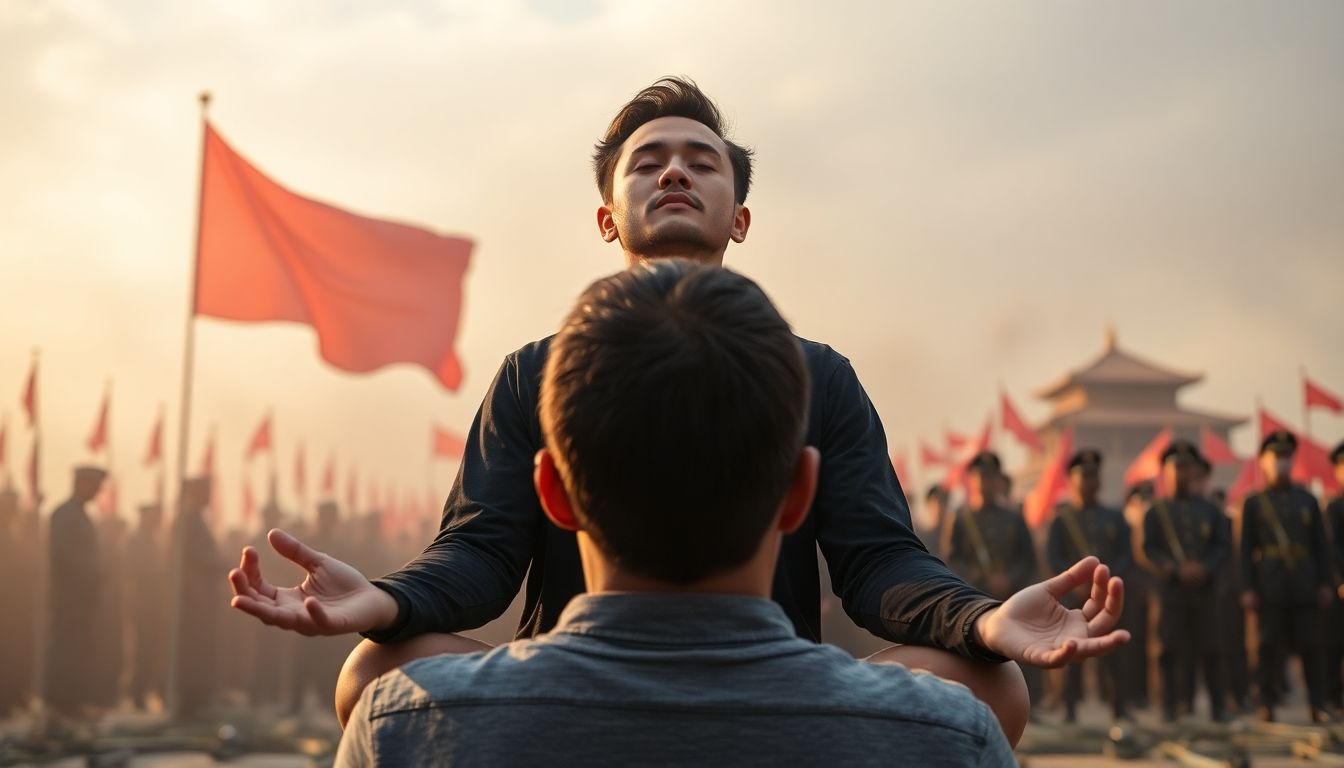
Preparing for the Long Haul: Mental and Emotional Resilience
Embarking on a journey through martial law is akin to setting sail on an uncharted sea, filled with uncertainties and challenges that test our mental and emotional fortitude. In such times, resilience
- our ability to bounce back, adapt, and grow
- is not just a virtue, but a necessity. It’s the beacon that guides us through the storm, keeping our spirits afloat and our communities united.
Mental and emotional resilience are the twin pillars that support our well-being during trying times. They help us navigate the labyrinth of stress, anxiety, and fear, and emerge stronger on the other side. During martial law, these qualities are not luxuries; they are essential tools for survival.
Cultivating a positive mindset is the first step in building this resilience. It’s like packing our mental backpack with optimism, gratitude, and hope. Start by acknowledging the situation, accepting what you can’t control, and focusing on what you can. Practice mindfulness and stay present, rather than dwelling on fears of the future or regrets of the past. Remember, a positive mindset doesn’t mean ignoring the challenges, but choosing to see opportunities for growth and learning.
Stress, like a relentless tide, will ebb and flow during martial law. It’s crucial to have coping mechanisms to weather these waves. Physical activity, even in confined spaces, can be a powerful stress reliever. Mindfulness practices like meditation or yoga can help calm the mind and soothe the soul. Connecting with nature, if possible, can provide a sense of peace and perspective. And don’t forget the power of creative outlets
- art, music, or writing can help express and process complex emotions.
Supporting others in your community is not just a moral obligation, but a practical necessity. We are social beings, and our resilience is intertwined with that of our community. Reach out to others, share your resources, and offer a listening ear. United, we can weather the storm more effectively. Remember, every act of kindness, every shared smile, every word of encouragement is a lifeline, pulling someone else out of the depths of despair.
In conclusion, preparing for the long haul during martial law is about more than just stockpiling supplies. It’s about nurturing our mental and emotional resilience, maintaining a positive mindset, coping with stress, and supporting our community. It’s about turning challenges into opportunities for growth, and darkness into a chance to shine our light. After all, it’s not the storm that defines us, but how we navigate through it.
FAQ
What is Martial Law and how does it differ from a typical emergency situation?
How can I prepare for the possibility of martial law?
- Stay informed: Keep up-to-date with local news and developments that might indicate a potential need for martial law.
- Stock up on supplies: Ensure you have enough food, water, medication, and other essentials to last for at least a few weeks.
- Secure your home: Strengthen your home’s security to protect against potential looting or unrest.
- Learn self-defense: Consider learning basic self-defense techniques to protect yourself and your family.
- Know your rights: Familiarize yourself with your civil rights and the limits of government power. This knowledge can help you navigate interactions with authorities and protect yourself from potential overreach.
What are some of my civil rights during martial law?
- The right to due process and fair trials (although military tribunals may be established).
- The right to free speech, although this may be restricted to prevent incitement of violence or unrest.
- The right to freedom of religion.
- The right to privacy and protection from unreasonable searches and seizures, although these rights may be temporarily suspended in certain circumstances.
- The right to equal protection under the law.
It’s essential to remember that while these rights may be temporarily suspended, they are not eliminated, and they should be restored once the martial law is lifted.
What is government overreach, and how can I recognize it during martial law?
- Unjustified curfews or restrictions on movement that are not necessary for public safety.
- Unlawful searches and seizures of property without proper authorization or cause.
- Arbitrary detentions or arrests without due process.
- Censorship of the media or suppression of free speech that is not necessary to maintain order.
- Misuse of military or police powers to target specific groups or individuals without cause.
If you suspect government overreach, document the incidents, and consider seeking legal advice or reporting the behavior to appropriate oversight bodies.
What should I do if I’m arrested or detained during martial law?
- Ask for a lawyer immediately. If you cannot afford one, request a public defender.
- Do not make any statements or admissions until you have consulted with a lawyer. You have the right to remain silent.
- Do not sign any documents without first consulting with a lawyer.
- Try to memorize or write down the names and badge numbers of the officers involved in your arrest or detention.
- Contact a trusted friend or family member and inform them of your situation.
- If you feel that your rights have been violated, document the incident as soon as possible and consider seeking legal advice after your release.
Remember, it’s crucial to cooperate with authorities while asserting your rights. Do not resist arrest, as this can escalate the situation and potentially lead to harm.
How can I protect my family and loved ones during martial law?
- Develop a family emergency plan, including evacuation routes, meeting points, and communication strategies.
- Stock up on essential supplies, such as food, water, medication, and first aid kits, to ensure your family’s immediate needs are met.
- Establish a support network of friends, family, or neighbors who can help each other in times of crisis.
- Teach your family basic self-defense techniques and ensure they know how to contact emergency services.
- Stay informed about local developments and follow the advice of authorities, but also be critical and verify information from multiple sources.
- Encourage open communication and discuss your family’s concerns, fears, and plans regularly. This can help alleviate anxiety and ensure everyone is on the same page.
Remember, the best way to protect your family is to be prepared and to work together.
What can I do if I witness a violation of civil rights during martial law?
- Safely document the incident, taking notes, photos, or videos if possible, while ensuring your own safety and the safety of those involved.
- Write down the names and contact information of any witnesses, as well as the names and badge numbers of the officers involved.
- Report the incident to the relevant oversight bodies, such as the Department of Justice, the FBI, or local law enforcement internal affairs divisions. You can also contact civil rights organizations for guidance and support.
- Consult with a legal professional to discuss your options and potential recourse.
- If you feel immediately threatened or in danger, contact emergency services and report the incident as a matter of urgency.
By documenting and reporting civil rights violations, you can help hold those responsible accountable and contribute to the restoration of justice.



